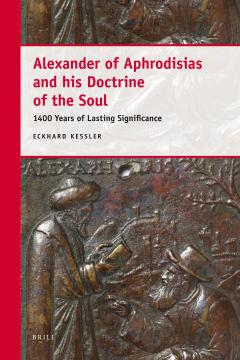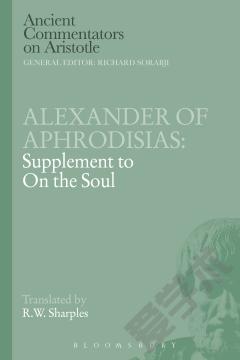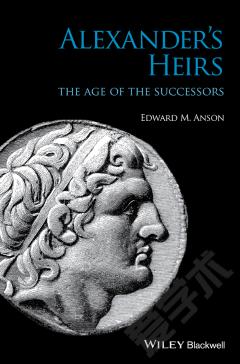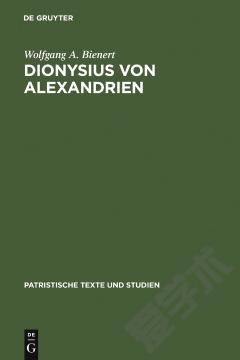Alexander of Aphrodisias and his Doctrine of the Soul —— 1400 Years of Lasting Significance
----- Aphrodisias亚历山大和他的灵魂学说:深远的意义1400年
This piece of work intends to shed light on Alexander of Aphrodisias from the second-century Aristotle commentator through the history of Aristotelian psychology up to the sixteenth century's clandestine prompter of the new philosophy of nature. In the millennium after his death the head of the Peripatetic school in Athens served as the authority on Aristotle in the Neo-Platonic school, survived the Arabic centuries of philosophy as Averroes' exemplary exponent of the mortality of the soul and as such was not considered worthy of translation by the Latin Scholastics. This attitude changed only in the Late Middle Ages, when the resistance against Averroes grew fierce and Alexander emerged as the only Aristotelian alternative to him. In 1495 his account of Aristotle's psychology was translated and published and the underlying principles of a natural philosophy, based on sense perception and exempt from metaphysics, became accessible. The prompt reception and widespread endorsement of Alexander's teaching testify to his impact throughout the sixteenth century.
{{comment.content}}








 京公网安备 11010802027623号
京公网安备 11010802027623号